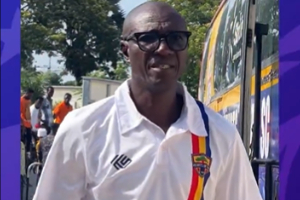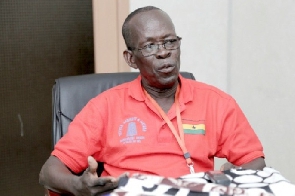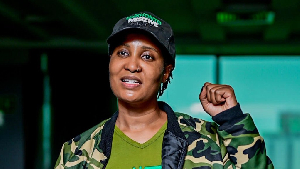Lots of Ghanaians living abroad dream of returning home for good. Not all of them achieve this. What separates the dreamers from the achievers is a certain single-mindedness, a stubborn resolve to succeed.
I, like many thousands of Ghanaians, who lived abroad, decided to pack up and go home. It was this fateful 15th day of July in 1996. Only three more days to go before my departure date and with a job already waiting for me at home, it was safe to say that I was ready. Part of my preparation was to conduct a qualitative study of returnees with anyone who was willing to give me five minutes. However, with a little help from my ‘friends’ and colleagues, the ‘I should be okay’ route was discarded. I called my two children (the only two assets I had not hire-purchased or re-mortgaged). We were homebound to Ghana. I packed lock, stock and barrel – every useful junk I had acquired during my over 15 years stay in Europe. My knowledge of how returnees settled in Ghana was purely theoretical. I had never seen it first hand.
Nevertheless, one thing was for sure – I was going to face a change. Change both desired and resisted. You see, change is a bugger. People don’t often want to change even if they are unhappy with their lot. This is why none of my colleagues and ‘friends’ was willing to assure me that I was going to be ‘okay’ in Ghana.
The feel of Ghana started from London’s Heathrow Airport even before I sat in the delayed Ghana Airways flight to Accra. The exceedingly long disorganised queue, disgruntled passengers, confused airline staff, torn between whom to favour and who not to favour, gave me an insight to the ‘very warm’ reception awaiting me at the other end. My journey had already started with me not knowing anyone, so no favours were being granted to me.
Finally, we were aboard. As we entered, we were greeted with smiling flight stewards (thank God they were there!) and half-grinning, half-frowning flight stewardesses. I suppose that the attitude of the stewardesses could be in the name of beauty or the need of a group rate on a very good psychiatrist. Why not- they live in a world where women pluck their eyebrows and draw some back on!
The flight was eventful. I had the company of a smartly dressed lady visiting home for holidays and that of a semi-illiterate grandmother who had been given the awesome task of taking her hyperactive grandson home for a ‘long’ holiday. Peace was the last thing on the poor boy’s mind. I put on my headset to escape the constant joys of screaming and ‘stop it’ being said every two minutes by the Grandmother in the best Cockney (East London accent) she had acquired during her stay in London. This is when I thought that the smartly dressed lady might share my plight and perhaps welcome a chat with me – Oh no I was wrong! As I turn to talk to her, she immediately puts her headset on, leaving me as clueless as a dyslexic on Countdown (a quiz show with letters and figures). Suddenly, I realised that change is simultaneously desired and resisted. The look on her face was enough to make you eat the in-flight food.
The Captain announced that we were going to land in Accra in about 15minutes – my native Accra. While bracing myself to do the decent thing, by thanking the Almighty for helping us to land safely, I was thrown into a state of shock for about 10 minutes with almost everyone opening the overhead lockers to bring down their overweight hand luggage – all getting ready for the touch down. Shortly after that, we were in Accra. The doors were open, stairs had been put in place and every one was rushing out – Of course, this is Ghana and they were home! I looked out as I stood at the top of the flight stairs and noticed the Akwaaba sign written in red, gold and green and sighed with joy. This is Ghana, welcome home and I was not going to be ushered into the arrival hall electronically. At that time, we went down a flight of metal stairs and walked to the arrival hall. Today, buses convey you there.
As we walked through the arrival hall, we were greeted with a clutter of tables, classroom types, all labelled with miscellaneous services, ranging from Port Health, Help Desk, Customer Service desk, Where have you been desk, …these greet you even before you get to the immigration desk. Amidst all these chaos, I knew that I never wanted to be anywhere else. I was especially pleased at the sight of the “Ghanaian and Ecowas” passport holders’ queue moving faster than the queue for other passports. What a change! The desired change. After currency declaration, I walked past a kiosk with a yellow inscription PUBD – Not knowing what it meant, and frantically waiting to spot my bags which were then being thrown mercilessly onto some sort of conveyor belt. I was tapped on the shoulder by an ‘aggressive porter’ who had come to advice me in Twi that if I had unaccompanied baggage, I should remember to visit the PUBD desk since failure to do so, would result in very unpleasant circumstances with my baggage. That was when I learned the meaning of P.U.B.D. to be Passenger Unaccompanied Baggage Declaration. You would think that someone would have thought it appropriate to tell passengers amidst those clutter of tables and series of announcements on the flight the meaning of some of these jargons.
Change was never more strident. This was a country, my home, where no modern politician, no matter how conservative, could declare a status quo to be the way forward. Change was going to involve everyone including returnees like me. I chose my first task to help with the change there and then. As soon as I was settled, I was going to help improve the image of Kotoka International Airport. At least I knew that a few constructive comments and assistance from me could prevent other returnees from falling over tables and probably help them understand the meaning of PUBD before they walked past the sign! My country would need a radical redesign - a way to radically improve and this would involve everyone including me.
A decade or so ago, car manufacturers completely transformed the way they made motor cars: they stopped stockpiling components and supplied them ‘just in time’; they drastically reduced the types of components such as subframes and engines; they worked closely with their suppliers on quality and timelessness instead of beating them down on price. They eliminated waste by making all workers responsible for quality, not just inspectors. As a result, new models took less time to develop; their quality improved and cars could be made to order for each customer. At the same time, productivity improved and costs fell!
This is what is called teamwork and social engineering. Social engineering got a bad name in the 1980s but all politics is social engineering. Rather than deny they are doing it, those who engage in it should ensure they do it well and evaluate its effects.
The rulebook states that a good team is a balanced team with a spread of abilities and strengths, which are played upon. But here I am among my fellow countrymen, with simply too many gaps in the roles that were needed for success. Worse was the lack of collaboration – individuals’ views dominate, assumptions are made and co-operation is reluctant. Team success requires an ability to forgo personal glory. At the last hurdle, we will have to get our act together as a team to ensure that we emerge victorious.














